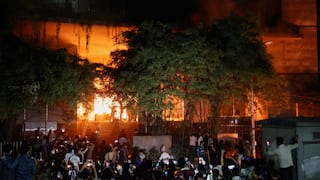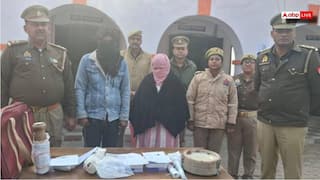Anantnag Encounter: Concerns Rise Over ‘Uptick’ In Infiltration In J&K, 100 Terrorists Suspected To Be Active
Around 100 terrorists are currently active in the Jammu and Kashmir region, out of which 60 percent are from Pakistan and about 40 percent are locals, top intel sources told ABP LIVE.

Kokernag/Anantnag Encounter: The counter-terrorism operation currently underway in Jammu and Kashmir’s Anantnag district has served as a major wake-up call for the country’s security apparatus. While Operation Garol might be wrapped up by Tuesday or Wednesday, there are concerns that cross-border infiltration is once again witnessing an “uptick” with around 100 terrorists being active in the region, which includes “foreign as well as local terrorists”, ABP LIVE has learnt.
Nearly 100 terrorists are currently active in the Jammu and Kashmir region, of which 60 percent are from Pakistan and about 40 percent are locals. However, “proactive” ops are being undertaken by the Indian Army as well as the Jammu and Kashmir Police, like the one in the Kokernag area of Anantnag, to flush out the terrorists, top intel sources told ABP LIVE.
According to the sources, while the security forces initially suffered a setback as they lost four security personnel, the Army and the J&K Police since then have gone in for specific input-based ops and were able to demolish the tactical advantage the terrorists were getting due to the height and foliage of the Pir Panjal Range where they have dug out tunnels and trenches.
While Operation Garol is still underway and has entered its sixth day, the security forces have been able to drive the terrorists into their hideouts by increasing search operations manifold and carrying out attacks on specific targets such as breaking of dug-outs and closing the tunnels that have come up across the entire Pir Panjal range, the sources said.
However, according to intel reports, the entire Pir Panjal range has been infested with terrorists who have been using modern arms and high-tech equipment. The terrorists have carved out caves, tunnels and several small-sized dugouts across the mountain range. Hence, the Army is forced to use rocket-propelled grenade launcher to demolish the entire infrastructure.
Authorities are now concerned that Anantnag-type encounters will be long-drawn and will continue to happen in the future too even as the security forces are working on filling the gaps in the anti-infiltration grid that have all been actively operating across J&K. But the sources also did not rule out the fact that one of the main motives of the terrorists was to jeopardise the G20 Summit.
Sources in the Army told ABP LIVE that the entire Pir Panjal range was yet to be completely sanitised, but there have been no firing from the terrorists’ hideout for the past couple of days. The terrorists are believed to have kept a heavy stash of weaponry inside the caves. Thus, the Army has carried out high-intensity operations in which hi-tech equipment is being used for surveillance and delivery of firepower along with the high impact of precision fire being used by the forces.
‘Well-organised Cell With Handlers Located Across Border’
The J&K Police Monday said they are focussing on the centres of a local operative of Lashkar-e-Taiba (LeT), Mohammad Uzair Khan. Khan, hailing from Nagam Kokernag and the son of Bashir Ahmad Khan, reportedly joined the LeT in July 2022.
According to them, terrorists from LeT, Jaish-e-Mohamed, Hizbul Mujahideen as well as Al Badr, have infiltrated into South Kashmir.
Currently, South Kashmir hosts the largest number of active militants, which includes districts like Anantnag, Pulwama, Shopian, and Kulgam that continue to be hotbeds of militancy. In north Kashmir, there are 16 active militants, with 13 of them being foreigners operating in Baramulla, Kupwara, and Bandipora. In Central Kashmir, comprising Srinagar, Budgam, and Ganderbal, nine militants remain active, seven of whom have crossed over from the border, J&K Police told reporters.
Notably, at least ten key handlers associated with militant outfits such as LeT, JeM, and HM are on the security forces’ most-wanted list. Among them is Saifullah Sajid Jutt, an LeT and People’s Anti-Fascist Front (PAFF) handler based in Pakistan. The government recently banned the PAFF for employing both physical and social media platforms to radicalise and recruit militants in the Valley.






































